These women contributed a lot to the 1848-1849 Hungarian revolution!

March 15th is a significant date in the lives of Hungarians. Even though most of the time men are in the focus when it comes to commemorations, we must not forget that numerous women also took part in the events. Be it with words, actual swords or pioneering acts, these women proved that they were truly loyal to their home country, even years after the revolution.
Noklapja.nlcafe.hu compiled a list of women who played important roles in the events surrounding and following the 1848-49 revolution.
Júlia Szendrey, the female spokesperson of the war
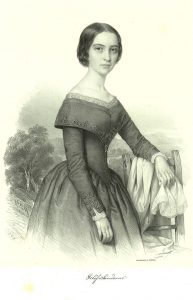
Photo: wikipedia.org
Júlia Szendrey is mostly known as the wife of Sándor Petőfi, the beloved poet, left behind when he went to fight in the revolution. However, it is a lesser known fact that she also believed fervently in the cause of the revolution and, in April 1848, she called on women to send their sweethearts, husbands and sons to fight.
Contemporaries criticised her dedication to the revolution, with some going as far as accusing her of sending her husband to his eventual demise by being so outspoken in favour of the revolution. Whatever the truth may be, it is certain that she believed in the cause and helped women realise that they can contribute as well, if nothing else then by supporting their husbands.
Antónia and Karolina Zichy, wives of aristocrats
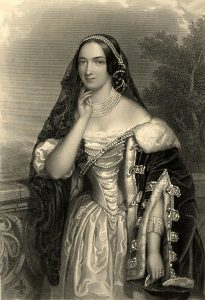
Photo: Wikipedia.org
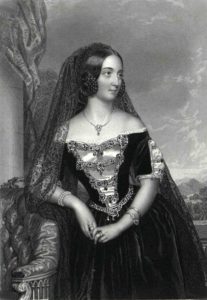
Photo: wikipedia.org
Antónia Zichy (the wife of Lajos Batthyány) and her sister, Karolina Zichy (the wife of György Károlyi), were esteemed members of the aristocracy. They used their status for the respectable cause of proclaiming the Hungarian agenda. They were adamant about wearing Hungarian clothes, using the Hungarian language, dancing to Hungarian music and buying exclusively Hungarian products. Their influence on the Hungarian political elite’s mentality continued after the revolution, too.
Klára Leövey and Blanka Teleki, the enlightened governesses
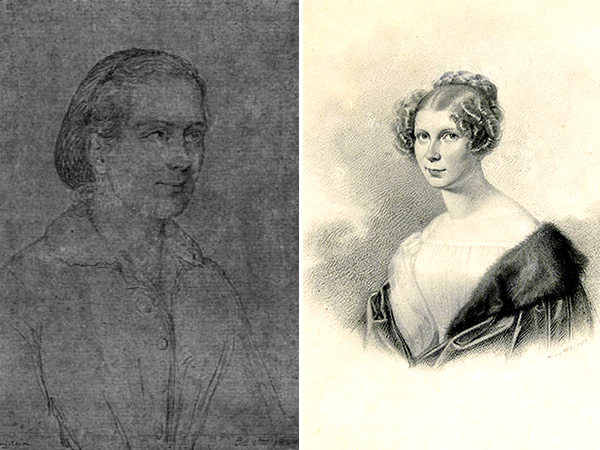
Photo: wikipedia.org
Klára Leövey and Blanka Teleki’s influence on forming the minds of the next generation of women is undeniable. They both taught their pupils in the spirit of national values. Following the events in March, Leövey often attended the meetings held in the garden of the Hungarian National Museum, while Teleki left her mark by writing manifestos proclaiming patriotism. They both attended to the wounds of Hungarian soldiers as the fights progressed. Then, in 1851, they were both arrested for hiding politicians from 1848 from the authorities.
Júlia Bányai, the woman with the sword
In the middle of the 19th century, it was unheard of that a woman could use a sword properly. This did not stop Júlia Bányai, though, who enlisted in the troops at Nagyvárad in her late husband’s name. There, she prompted attention through her excellent spying skills. Later, she even got as far as being in charge of the Transylvanian troops as József Bem trusted her skills so much.
Emília Csernovics, protector of orphans
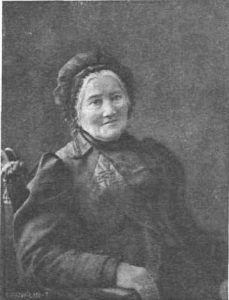
Photo: wikipedia.org
Emília Csernovics, the widow of János Damjanich, dedicated her time and energy to helping those aggrieved by the revolution. On the 15th of March 1861, along with the Zichy sisters, she founded an organisation to help the widows and orphans and to make life a bit easier for those in need.
[button link=”#https://dailynewshungary.com/just-giving-flowers-or-something-more-it-is-international-womens-day/” type=”big” newwindow=”yes”] What do women want today? Are flowers and chocolate enough?[/button]
Teréz Karacs and the hard-working pupils
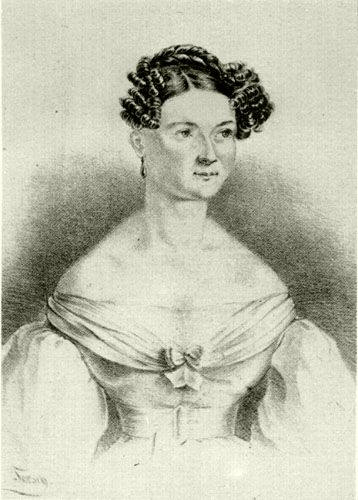
Photo: wikipedia.org
Teréz Karacs was the sole woman who was present at the congress dedicated to the issues of education between July 20-24th in 1848. She demanded that male and female teachers receive the same salary, being very much ahead of her time. Nevertheless, she is most well-known for sewing underwear for the soldiers with her pupils and making collections on the soldiers’ behalf.
Zsuzsanna Kossuth, the head nurse
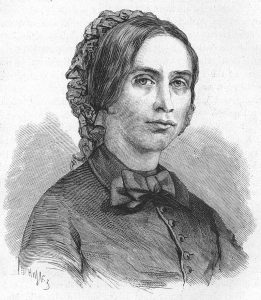
Photo: wikipedia.org
Zsuzsanna Kossuth, the sister of Lajos Kossuth, sacrificed her own life with her children in order to help the cause of the revolution as best she could as a nurse. The first military wards are connected to her name – she established altogether 72 wards in the country. It is also thanks to her that so many women volunteered to become nurses and help look after the wounded. Her achievements are especially significant today, knowing that the men of her time disregarded all her attempts and enlightened ideas.
Mária Lebstück, the lieutenant

Photo: wikipedia.org
According to historical sources, Mária was 18 years old when she decided to become a soldier, after finding herself in the middle of a demonstration. She bought men’s clothing after selling one of her earrings, cut her hair and joined the troops of the university in Vienna, using her father’s name. She moved between various legions, going so far as becoming a lieutenant by the end of the revolution. Her adventures served as the inspiration for an opera.
Featured image: facebook.com/alfoldiandreamnsz
https://dailynewshungary.com/its-revolution-day-fantastic-programs-in-hungary-this-weekend-commemorating-march-15/
Source: noklapja.nlcafe.hu






Very interesting article.